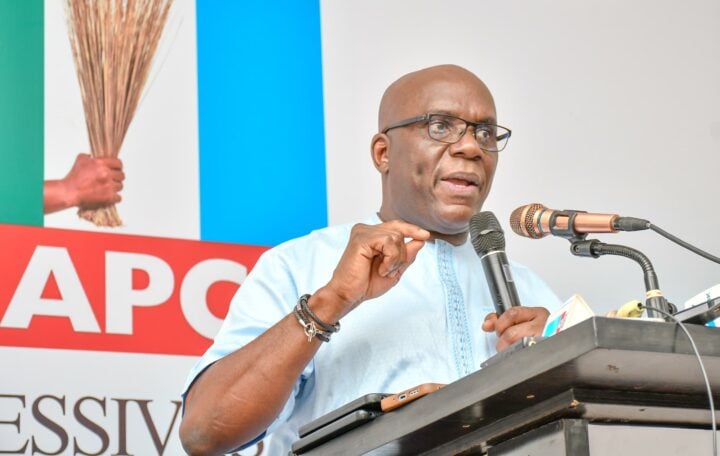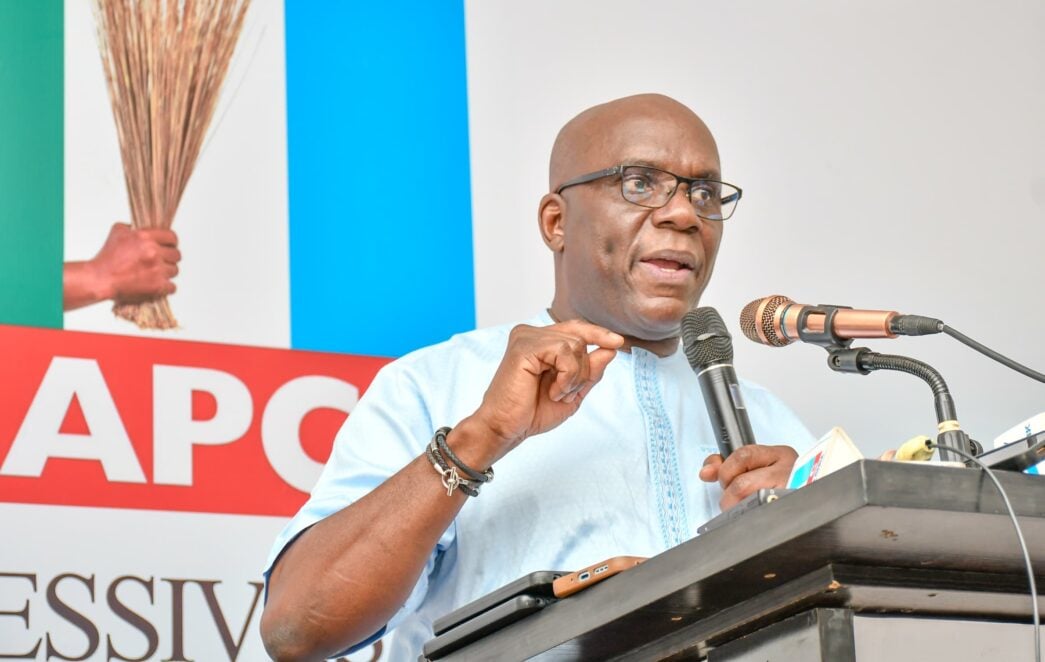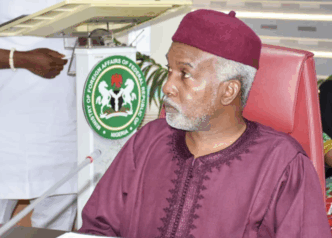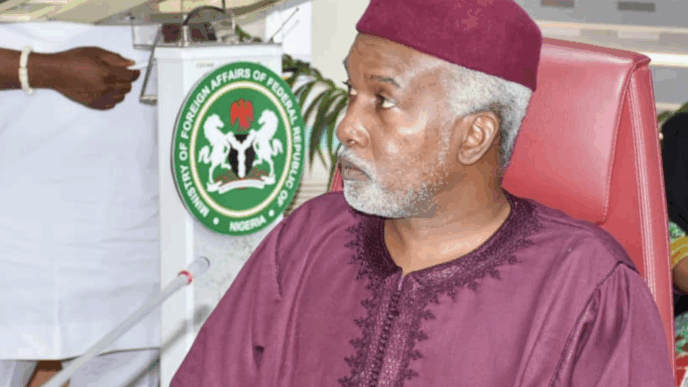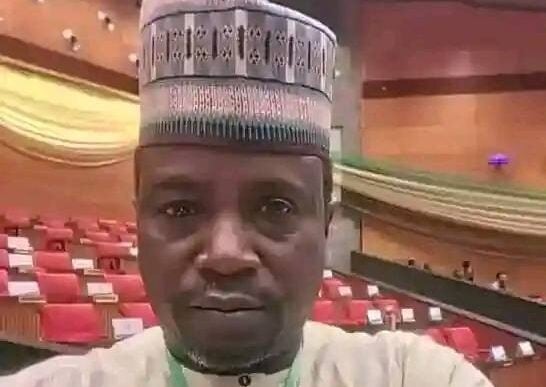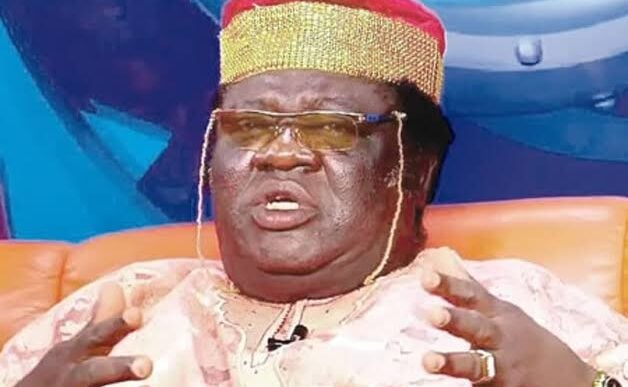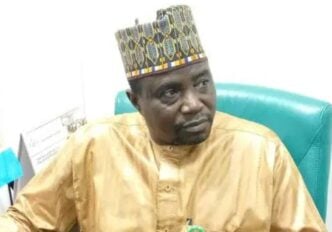Felix Morka, APC spokesperson
Felix Morka, spokesperson of the All Progressives Congress (APC), has debunked reports suggesting that a Canadian court designated the party as a terrorist organisation.
In a statement on Friday, Morka described the claim as “a reckless fabrication”, urging the public to disregard it.
Morka said the report was based on a misrepresentation of a judgement delivered by Phuong Ngo, a judge of the federal court of Canada, on June 17, 2025.
He said the case involved Douglas Egharevba, who had sought a judicial review of a decision by the Canadian Immigration Appeal Division (IAD), which ruled that he was inadmissible to Canada under the country’s Immigration and Refugee Protection Act (IRPA).
Advertisement
“The Canadian court did not declare APC as a terrorist organisation, contrary to highly erroneous media reports in circulation,” the statement reads.
Morka said the court’s ruling found that Egharevba, a member of the Peoples Democratic Party (PDP), was inadmissible because the party and its members were engaged in acts of subversion against the democratic process.
Quoting the judgement, Morka said the judge noted, “I cannot find the IAD’s conclusion that the elections in question constituted a democratic process or institution and that the PDP, its members and supporters engaged in subversive acts committed against the electoral process for the improper purpose of maintaining political power to be unreasonable.”
Advertisement
He said the only mention of the APC in the entire 16-page judgement is in paragraph four, which outlines the applicant’s political history.
“In that section, the applicant claimed to have been a member of the PDP from December 1999 to December 2007 and a member of the APC from December 2007 to May 2017,” Morka said.
He added that the claim was “evidently false” because the APC was not registered until 2013 and did not exist in 2007.
“To be clear, APC was not in existence as of 2007,” the APC spokesperson said.
Advertisement
“For the avoidance of doubt, we make bold to state that the court never made any determination on the question of terrorism in its decision.”
He said the judge clearly stated, “Having found that the IAD’s analysis on subversion was reasonable, this is sufficient to dismiss the application for review. I will therefore refrain from analysing the IAD’s findings on terrorism.”
Morka said it was “patently erroneous, if not mischievous” for anyone to report that APC was declared a terrorist group by the court.
“The court did not make such a declaration and could not have done so as that would be an unjustifiable overreach, and a major breach of fair hearing, among other due process rights, given that APC was not a party to the proceedings,” he said.
Advertisement
“Such a decision would also have been of absolute irrelevance as being made without jurisdiction and of no extraterritorial applicability or significance.”
He urged APC members, supporters and Nigerians to disregard the reports as false and misleading.
Advertisement
BACKGROUND
Egharevba, the applicant who is Nigerian, had appealed the decision not to grant him asylum on the grounds that he was a member of the PDP and APC at different times.
Advertisement
In January 2019, an immigration officer declared that the applicant was inadmissible to Canada under paragraph 34(1)(f) of the Immigration and Refugee Protection Act (IRPA) as it relates to paragraphs 34(1)(b.1) and 34(1)(c) for “being a member of an organization that has engaged in acts of subversion against a democratic government, institution, or process and engaged in terrorism, based on his membership with the PDP”.
The applicant had challenged his inadmissibility before the immigration department.
Advertisement
He also argued that he never participated in the violence and manipulation that mars elections in Nigeria, insisting he had never personally engaged in terrorism or subversion.
However, Phuong Ngo, the judge, disagreed in a judgment delivered on June 17, 2025.
“The Applicant most likely downplayed his knowledge and the seriousness of political violence committed by the parties in which he was involved,” the judgment reads.
“The IAD reversed the ID’s decision and found that the evidence was established on reasonable grounds to believe that, pursuant to paragraph 34(1)(f) of the IRPA, the Applicant was a member of an organization that engages, has engaged, or will engage in acts of subversion against a democratic government, institution or process as they are understood in Canada.
“The Applicant is a citizen of Nigeria. In September 2017, the Applicant entered Canada and initiated an inland refugee claim.
“The Applicant submitted a Background Declaration Form stating that he was a member of the People’s Democratic Party [PDP] of Nigeria from December 1999 until December 2007, and a member of the All Progressives Congress [APC] party of Nigeria from December 2007 until May 2017.
“As a result of this information, he was referred to a Canadian Border Services Agency [CBSA] officer to determine whether he was admissible to Canada.
“In September 2018, the Applicant confirmed his membership in the PDP and APC in an interview with the CBSA officer.”
